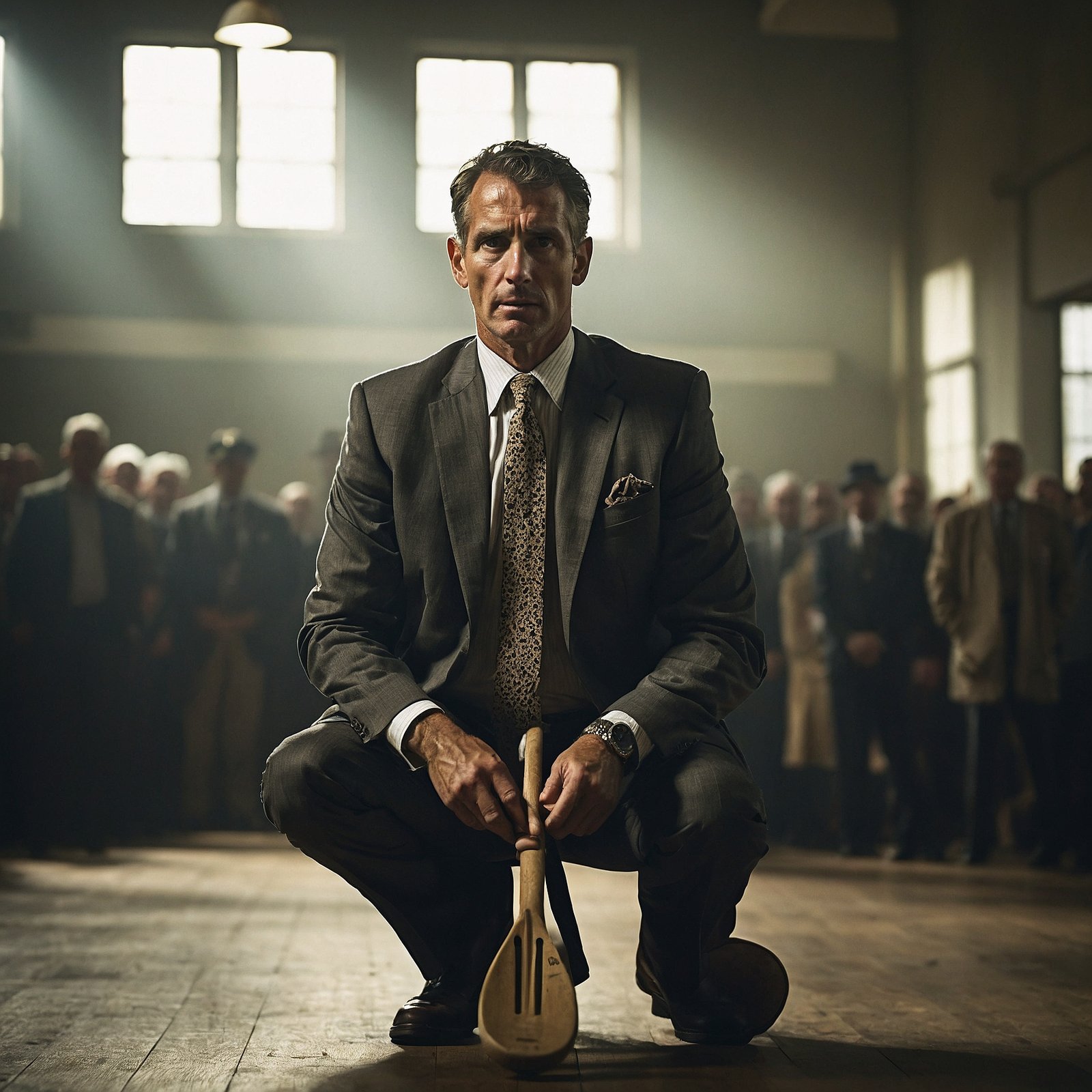I never thought that my love for vintage watches would almost ruin my entire career. It was a chilly October morning, and the auction hall was buzzing with an electrifying mix of greed and excitement. I was there, perched on a velvet-covered seat, ready with my paddle – number 57, my lucky number, I had hoped. My palms were sweating as Lot 42 was brought out. A rare 1940s Omega, rumored once to belong to a war hero.
The auctioneer began, and numbers flew. I was right there, swinging with each bid, higher and higher into what could only be described as financial insanity for someone at my pay grade. What was I thinking? The surge of the auction and the lure of that watch had blinded me.
As the final call was made, my hand, as though possessed, shot up. “Sold! To number 57!” the auctioneer bellowed. My heart stopped. What had I done?
The room erupted in applause, while my stomach twisted into a thousand knots. I had won, yes, but at what cost? I’d just gambled a gigantic portion of my savings, far more than I could afford. This watch wasn’t just a watch anymore; it was my monstrous folly held together by leather straps.
I stumbled out, the weight of potential ruin heavy on my shoulders. It didn’t end there, though. The nightmare was only just beginning. I thought the watch was my biggest problem until I got back home and found that my life was about to get far more complicated, thanks to a seemingly innocent purchase. As I entered my apartment complex, I was greeted not by the usual nod from Mr. Jensen at the door but by two stern-looking men in crisp suits waiting by my door. “Are you Sam Harper?” one asked solemnly.
How in the world could buying a watch spiral into this mess? I felt my pulse quicken, the tick of the Omega now sounding like a time bomb strapped to my wrist.
Continuing from where we left off, with the two men in suits now introducing themselves not as debt collectors or thugs, which I might have half expected, but as agents from some government branch I wasn’t entirely familiar with. “Federal Security Office,” they had said, a term so vague it sent a new kind of shiver down my spine.
At this moment, everything started to feel like a blur. They began by asking questions—lots of them—about where I got the money for the auction, why I wanted that particular watch so badly, and if I had connections to certain known names on their list. It felt unreal, a bad dream where I was suddenly a character in a spy thriller, except, there was no director yelling cut.
The more we talked, the more I realized that the watch carried with it a history I hadn’t bargained for. Not only had it belonged to a war hero, but it appeared to have been involved in some covert operations during the 1940s. Documents, microfilms, and who knows what else had supposedly been concealed within its casing. The agents were here to find out if I was just an overly enthusiastic collector or someone digging into past secrets that were meant to stay buried.
Days turned into weeks, and the interrogation sessions grew longer. My life, my background, everything was being dissected. My job at the advertising agency was put on hold, and slowly, my relationships began to strain under the weight of my spiraling circumstances.
Despite all the chaos, a part of me was driven to find out more about the watch. The historian in me couldn’t let go. I dove into libraries, met with watch experts, and even tracked down the family of the alleged original owner. Each piece of the story was like a puzzle slowly fitting together to reveal a time-stamped legacy of espionage that was strapped to my wrist.
As this investigation of my own deepened, the agents started to see my genuine intrigue and passion for history, not espionage. Slowly, the ice thawed, and they began sharing findings from their end, turning our interactions from cold and investigative to a collaborative hunt for historical truths.
In a climactic meeting, armed with historical documents and photos I’d gathered, together with the official file the agents had compiled, we pieced together that the watch did indeed contain old documents, but they were plans for peace negotiations, not spy secrets as they had feared. This watch helped end a war, saving thousands of lives.
The revelation shifted everything. The government retained the watch but rewarded me handsomely, acknowledging both my inadvertent role in uncovering a forgotten slice of history and the personal upheaval I had endured.
Days after the ordeal ended, on a quiet morning as I composed my return to normalcy, my doorbell rang. It was a parcel—a replica of the Omega, and a letter offering me a consultancy position at the historical division of the Federal Security Office. I realized then, life had a funny way of turning your passions into your destiny, often when you least expect it.
And as I strapped on the replica, which felt cool against my wrist, it wasn’t just a reminder of the turmoil it caused but also of the incredible journey it had precipitated—a journey where time, quite literally, had revealed its most profound secrets.
